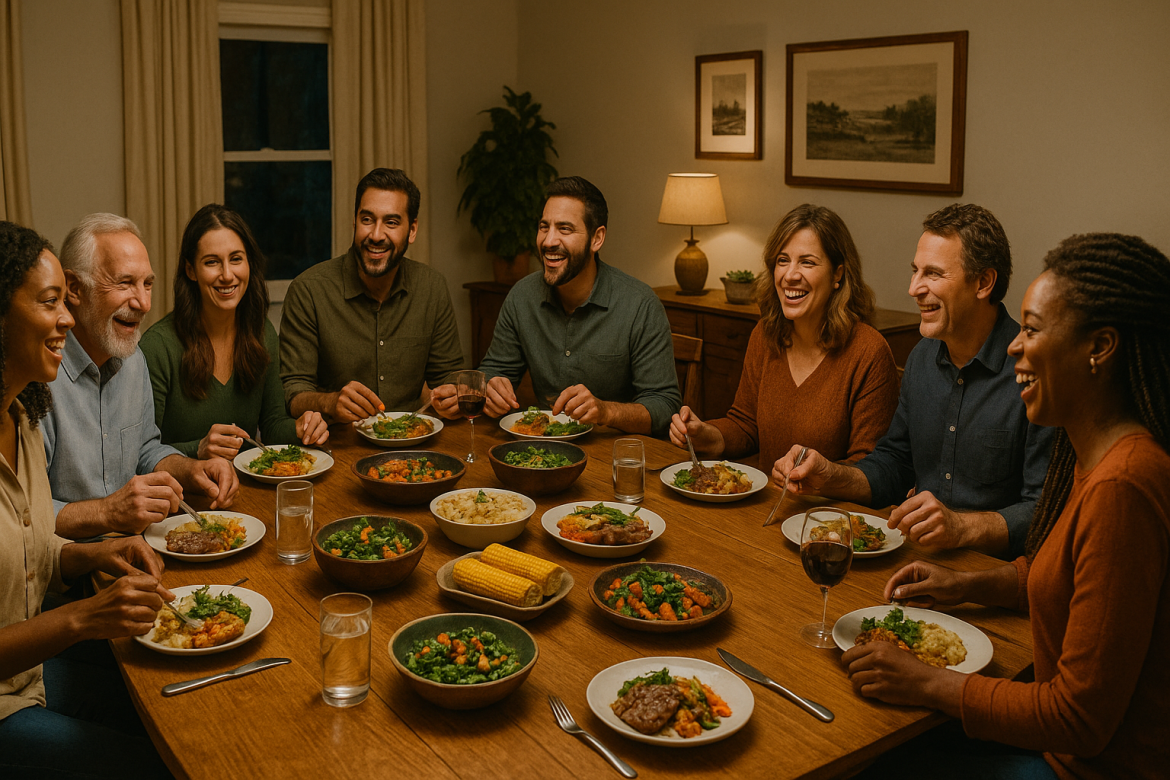Five Things We Will Learn
- Why the Amish don’t drive cars—and how that ties into preserving close-knit community.
- The biblical and spiritual significance of breaking bread together, as seen in Acts 2 and throughout Jesus’ ministry.
- How meals served as powerful moments of revelation, repentance, and salvation in the life of Jesus.
- Why who you eat with matters deeply to God, and how Paul warned against sharing meals with unrepentant believers.
- How the table on earth foreshadows the great wedding banquet prepared by God in heaven (Revelation 19:9).
Why don’t the Amish drive cars? It’s not because they believe cars are evil.
Back in the 1940s, the average American dinner lasted 90 minutes.
By 2023, it had dropped to just 12 minutes.
Back in the 1940s, the average American dinner lasted 90 minutes. By 2023, it had dropped to just 12 minutes. What I saw with the Amish is their deep value for meals—because meals are where community happens.
Every one of their rules centers around one thing: how to keep their community close.
It reminded me of the early Church in Acts 2:46, where “they broke bread in their homes and ate together with glad and sincere hearts—daily.” The table wasn’t just for food—it was where hearts were knit together, faith was passed on, and Jesus was honored in everyday life.
Jesus modeled this throughout His ministry. He didn’t just preach in synagogues or on hillsides—He entered homes and shared meals. He dined with tax collectors like Zacchaeus (Luke 19:5–10), where salvation came to a house around a table. He ate with sinners in Matthew’s home (Matthew 9:10–13), extending mercy and calling them to repentance. He was welcomed into Martha and Mary’s home (Luke 10:38–42), where Mary chose what Jesus called “the better portion”—sitting at His feet while the meal was prepared.
Before His crucifixion, Jesus gathered His disciples at a table for the Last Supper (Luke 22). After His resurrection, He revealed Himself again at a meal: “When He was at the table with them, He took bread, gave thanks, broke it and began to give it to them. Then their eyes were opened and they recognized Him” (Luke 24:30–31). The table was never just about food—it was about presence, revelation, and relationship.
But it also matters who you eat with. In the early Church, meals were sacred. Paul warned in 1 Corinthians 5:11 that believers should not even eat with someone who claims to follow Jesus yet lives in unrepentant sin. To share a meal is to share fellowship—it means alignment, agreement, and trust.
The Amish understand this. Meals aren’t rushed. They are sacred. They protect proximity because they understand what happens when people stay close—hearts remain soft, needs are met, and burdens are shared.
When I asked about cars, someone told me, “Carlos, [ speaking to Carlos Whittaker who was spending time with the Amish.] it’s not that we think cars are evil. If Miss Betty’s barn burned down, we could rebuild it in three days flat. But if we had cars, we’d all live too far apart to make that possible.”
So, for every new piece of technology, they ask two questions:
- Will this bring us closer together?
- Or will it tear us further apart?
And here’s the most beautiful part: this isn’t just about meals on earth—it’s about a table in heaven. God Himself is preparing a feast for His people. It will be a great wedding banquet—the marriage supper of the Lamb—where all of us who are His disciples will sit together at His table with Him in joy, in purity, in unity, and in everlasting celebration (Revelation 19:9).
That meal is coming. And just like every table Jesus sat at during His time on earth, that one too will be holy. Meals matter because people matter. And the table is where heaven and earth meet—now and forever.




